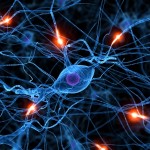My favorite graduate courses were the neuroscience courses. It fascinated me how the brain was organized, how it functioned, and how this incredibly complex and dynamic organism could be broken down and understood in simpler parts. Amazing.
And now that I work with trauma-influenced children, I’ve learned much more about neurodevelopment. I have had first-hand experience of the profound and pervasive effects their experiences have had on their ever-growing and ever-changing brains.
In that spirit, I wanted to share with you the 5 most important things you need to know about neurodevelopment. These five concepts are foundational to understanding how our brains, and how our clients, grow, develop, and learn.
5 Facts About Neurodevelopment
 Neurodevelopment is Predictable. Our nervous system develops in the same order every single time. Every time. The first systems to develop are the more primitive ones – those in the spinal cord and brainstem. These structures also happen to be life-sustaining and are responsible for basic regulatory functions (e.g. heart rate, respiration, consciousness, etc.). Our brain then develops in a sequential fashion – once the primitive systems are in place, development moves to the more complex structures (e.g. the neocortex). In fact, did you know that, even though our brainstem is basically fully developed at birth, parts of our neocortex are not fully developed until our mid-20s? And it happens in the same way….every single time.
Neurodevelopment is Predictable. Our nervous system develops in the same order every single time. Every time. The first systems to develop are the more primitive ones – those in the spinal cord and brainstem. These structures also happen to be life-sustaining and are responsible for basic regulatory functions (e.g. heart rate, respiration, consciousness, etc.). Our brain then develops in a sequential fashion – once the primitive systems are in place, development moves to the more complex structures (e.g. the neocortex). In fact, did you know that, even though our brainstem is basically fully developed at birth, parts of our neocortex are not fully developed until our mid-20s? And it happens in the same way….every single time.- Neurodevelopment is Hierarchical. Our brain is organized in a hierarchical fashion. The simpler, more primitive structures are responsible, or mediate, the more basic, primitive, simpler functions (e.g. the brainstem is responsible for many of our life-sustaining functions mentioned above). The more complex structures mediate the more complex functions (e.g. the neocortex is responsible for verbal skills and abstract reasoning). And our brains are wired (no pun intended) to develop in this hierarchical fashion. The simpler, more primitive structures need to develop before the more complex ones can. Success at one stage depends on success at previous stages. We had to learn how to sit up, before we could crawl, before we could stand, before walking, then running, jumping, etc. We didn’t start out running – the first step was to learn how to sit up. And it’s the same with neurodevelopment. We need to learn how to breathe and pump our blood before we can talk or make moral decisions. Neurodevelopment is hierarchical.
- Neurodevelopment is Use-Dependent. “Use-dependent” is a term Dr. Bruce Perry, a Texas-based researcher, uses. Use-dependency is a reason why we are so individualized, despite the fact that our brains develop in the same, predictable way every time. Neurons are the only cells in our body that change based on our experiences. This ability affects the whole brain. Our brain is constantly reacting to what occurs in our environment. It’s a very plastic organ. It responds to what is occurring in our environment and, if needed, will change so we can adapt to our environment. So the brain of a child who grows up in neglectful, abusive, chaotic environment will need different skills that the brain of a child who grows up in a stable, loving, nurturing environment. Their two brains will develop differently because they will adapt to the needs and skills each child requires to survive. Use-dependency – how our brains develop depend on how they are used.
- Neurodevelopment begins in the womb. We are shaped by our experiences even before we are born. Our brain is changing and adapting to the environment in utero. Scary, huh? (It was when I was pregnant!). The brain of a child whose mother experiences abuse while pregnant will be different than the brain of a child whose mother experiences love and support while pregnant. Those two children will have been exposed to their mothers’ emotions, chemicals, and stress and will develop differently as a reaction to those experiences. Our in utero experiences affect our developing brain. It begins in the womb.
- The first 3 years are the most important. The amount of learning and growing that takes place in the first three years of life is mind-boggling. Our brains will never grow as rapidly as they do when we are babies, infants, and toddlers. It’s during these early childhood years that that the majority of brain development occurs. According the Dr. Perry, our brains are 90% adult size by the time we turn 4. And the learning that takes place in those early years have profound and pervasive effects throughout our lives.
If you are interested in reading more, I would recommend the articles and writings of Dr. Bruce Perry. Although he is a neuroscientist and research, you will find his writings accessible and easy-to-understand. You can find much of his work available for free on his non-profit’s website, the Child Trauma Academy.


 orcid.org/0000-0001-8665-1493
orcid.org/0000-0001-8665-1493






{ 2 comments… read them below or add one }
I love what you guys are up too. This type of clever work and exposure! Keep up the awesome works guys I’ve added you guys to blogroll.
Thanks Janelle! ~Kimberly
You must log in to post a comment.
{ 2 trackbacks }